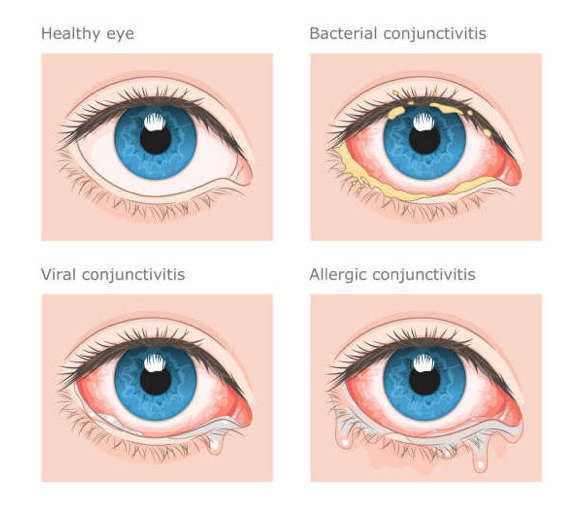What is Pink Eye?


Are All Pink Eyes The Same? The Dangerous Truth!
Pink eye, or conjunctivitis, commonly presents with signs and symptoms that can be similar to conditions like uveitis, scleritis, Ocular hypertension, glaucoma and many more. Unlike simple pink eye, these can have significant threat to vision, leading to permanent loss if inappropriatly treated or not treated in a timely manner. To definitively differentiate between conjunctivitis and potentially sight-threatening issues, seeking professional care from an Optometrist or ophthalmologist is paramount. Optometrist and Ophthalmologists utilize specialized equipment, such as a slit lamp (advanced microscope), to conduct a thorough examination and ensure optimal eye health. Remember, timely detection is key to preserving your vision.
Understanding Pink Eye: A Guide to Conjunctivitis
Pink eye, also known medically as conjunctivitis, is a common eye condition that can cause irritation and worry. It's characterized by inflammation of the conjunctiva, the thin membrane lining the inside of your eyelid and covering the white part of your eye. This inflammation can make your eye appear pink or reddish, hence the name.
Causes of Pink Eye:
Several factors can trigger pink eye, including:
- Viruses: This is the most common cause, often associated with the common cold or other upper respiratory infections.
- Bacteria: Less frequent than viral conjunctivitis, bacterial pink eye can be more persistent.
- Allergies: Airborne allergens like pollen or dust mites can irritate the conjunctiva, causing allergic conjunctivitis.
- Irritants: Smoke, chlorine, and certain chemicals can also inflame the conjunctiva.
Symptoms of Pink Eye:
The most common symptoms of pink eye include:
- Pink or red coloration in the white of the eye
- Gritty feeling in the eye
- Mild itching, burning, or irritation
- Increased tear production
- Crusting of eyelashes, especially in the morning
Is Pink Eye Contagious? How to Avoid Spreading It
Yes, pink eye can be contagious, but it depends on the type.
- Viral and bacterial conjunctivitis: These are the most common types and are highly contagious. They can spread through close contact, such as touching someone with pink eye and then touching your own eye, or by sharing contaminated objects like towels or makeup.
- Allergic conjunctivitis: This type is not contagious. It's caused by an allergic reaction to irritants like pollen or dust mites.
Seeking Medical Attention:
While pink eye often resolves on its own, consulting a doctor is recommended:
As mentioned earlier, the above symptoms can also be present in vision threatening conditions such as Uveitis, Glaucoma, Ocular Hypertension and more. As always, we recommend consulting with an Optometrist or Ophthalmologist for accurate diagnosis and timely treatment.